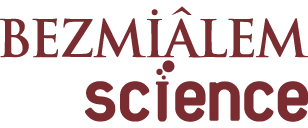COVID-19; Experiences and Future Prospects
Part I
The SARS-CoV-2 pandemic, which is showing its most destructive effects all over the world, is the biggest public health problem in human life history. The pneumonia induced by SARS-CoV-2 is named coronavirus disease 19 (COVID-19). To date, by 24th October 2020, 42.307.730 infected people globally is reported by “Johns Hopkins University & Medicine, Corona Virus Resource Center” while mortality cases are reported as up to 1.154.847 people (https://coronavirus.jhu.edu/map.html). COVID-19 pandemic created disruption in many aspects of daily life including functioning of institutions regulating public health from hospitals and universities to the local medical care centers. This pandemic not only introduced new treatment protocols to the known health care mechanisms but also was directed at serious changes in the state’s health policies and budget allocations.
This special issue of Bezmialem Science, the scientific publication of the Bezmialem Vakıf University, is reporting the experiences of health professionals from different parts of Republic of Turkey along with their foresights and suggestions for similar future cases in the extension of 7 original articles, 2 review articles and one letter to editor.
At our first original article Toker K. et al. aimed to identify and define the relationships among the median ages of countries, their death cases, and current health expenditures during the Coronavirus disease 2019 (COVID-19) pandemic. With a very detailed analysis interestingly they have concluded that the health expenditures made, did not make a strategic contribution in the reduction of the mortality rates. Their results provide a unique theoretical framework for countries aiming to develop national health management strategies.
The second article by Buyuakydin B. reports the correlation between neutrophil-lymphocyte ratio, platelet-lymphocyte ratio, inflammatory markers, and length of stay in hospital. The studies of author on hospitalized 87 females and 84 males with mean age of 57.9±14.6 shows positive correlation between the neutrophil-lymphocyte and platelet-lymphocyte ratio. With mean length of stay in hospital of 8.83±6.4 days, the author show that patients with high inflammatory markers had higher stay period in hospital, while the need of intensive care unit was 14.6% and the mortality rate was 9.9%.
A single-center retrospective observational study by Okay G. Et al. reports the evaluation of clinical features and prognosis in COVID-19 patients with hypertension. Their results indicate the additional attention that should be paid to prevent poor prognosis in COVID-19 patients with hypertension. According to their results among 260 COVID-19 patients, the need for oxygen therapy was higher in hypertensive patients as well as the rates of transfer to intensive care unit and in-hospital mortality.Kacmaz A.B. et al. have discussed another aspect of the Covid-19 pandemic by investigation of utility of rapid antibody test for screening occupational exposure to covid-19 among healthcare professionals. They mention that during pandemic, the reliability of rapid antibody tests has become under question due to validation issues. However, according to their results among 27 positive results obtained from rapid antibody tests on 222 health professionals, 24 showed COVID-19 diagnosis or potential symptoms of it, where 3 patients had no signs or symptoms of the disease. Thus, the authors report that the rapid antibody test may be feasible for COVID-19 screening among healthcare professionals to assess the precautions and prevent nosocomial infection.
Similarly, Balcı A. et al. call attention to the health care professionals’ knowledge, prevention, and the perceptions on the treatment of COVID-19. Since the risk of getting infected as well as the concern levels of the health professionals on this issue is very high due to their close contact with the infected patients, the authors have aimed to evaluate their view and perception during the treatment of the COVID-19. Authors have gathered very interesting perceptions from 250 medical doctors and 169 assistant healthcare professionals using an online survey e.g. their desire for quitting smoking after experiencing pandemic period. As conclusion to this work, authors state the sufficient knowledge of health professionals and their belief in the success of the Republic of Turkey in fight with COVID-19 pandemic.
Among all epidemiological and clinical studies on COVID-19 pandemic relationship between ABO blood group and COVID-19 is one of the most discussed risk factors. Uyuklu M. and Ozudogru O. have evaluated the effects of blood groups in the incidence of COVID-19 on 179 patients from Siirt-Turkey and have concluded that despite studies showing that the risk of COVID-19 infection was higher in the A blood group and lower in the O blood group, no relationship was found between the blood group and the risk of COVID-19 infection and intensive care therapy.
The authors of the last original research article of the current special issue analyze the online posts about COVID-19, which were shared for health professionals and the public on the official website and the social media of the Ministry of Health of Turkish Republic. Karakoc M.N. et al. document the early tweets of health authorities even before evidencing COVID-19 in Turkey and the positive correlation between the disease incidence and tweet traffics. Thus, they conclude the importance of social media as a risk communication factor during disasters such as pandemics.
In the first review article of this special issue Karakoc M.N. and Erdogan O. emphasize the need for enhancing the surge capacity of health care institutions and buildings. For this purpose they review the possibilities such as minimizing the resource consumption of patients and increasing the bed capacity and hence, creating alternative areas such as projecting the underground car parks of the hospitals as underground hospitals and the parks and reserve areas in the cities. With a very detailed SWOT analysis they conclude that rapidly increasing urbanization increases the patient burden in the health system and no matter how advanced the health systems and technology in the countries are, there may be an epidemic situation beyond predictions. At this point authors emphasize the necessity of making alternative plans and producing solutions against the worst scenario that may arise.
Perioperative precautions for novel coronavirus outbreak are discussed by Dağcı M. and Alptekin H.M. in the second and last review article of the current special issue. The authors review the pre- surgery process of patients with suspected or diagnosed COVID-19 surgery who need to be operated in urgent or emergent situations. They discuss the trainings should be provided on the effective use of personal protective equipment, precautions to be taken, and the abilities of health institutions in management of the preoperative, perioperative and postoperative process.
In the final article of the special issue a letter to editor is declaring the effective implementation of unprecedented measures for the protection from COVID-19 syndrome. In this letter Başer D.A. et al. discuss the success of the Republic of Turkey in crisis management and public compliance. They offer insight into the preparedness and response by Turkey of this continued global health threat posed by COVID-19.
A great quote from Albert Einstein will be suited to be used as the final sentence of this contribution: “If I had an hour to solve a problem I’d spend 55 minutes thinking about the problem and five minutes thinking about solutions.” The success relies under fighting with all disease arises from well-understanding of the disease mechanism and its reflections. This is why, the gained experiences become so precious. Now all thinking on COVID-19 is done and it is the time for the experiences to enlighten our way for future.
Finally, I would like to express my gratitude to the administration of Bezmialem Vakıf University and especially its Rector; Prof. Dr. Rümeyza Kazancıoğlu for supporting all our scientific studies, including the publication of this special issue throughout the pandemic, and I also owe to thank Prof. Dr. Adem Akçakaya, the Editor-in-chief of Bezmialem Science, for being the originator of this special issue and supporting every stage of its publication.
Guest EditorAssistant Prof. Dr. Fatemeh BahadoriBezmialem Vakıf UniversityFaculty of PharmacyDepartment of Pharmaceutical Biotechnology



